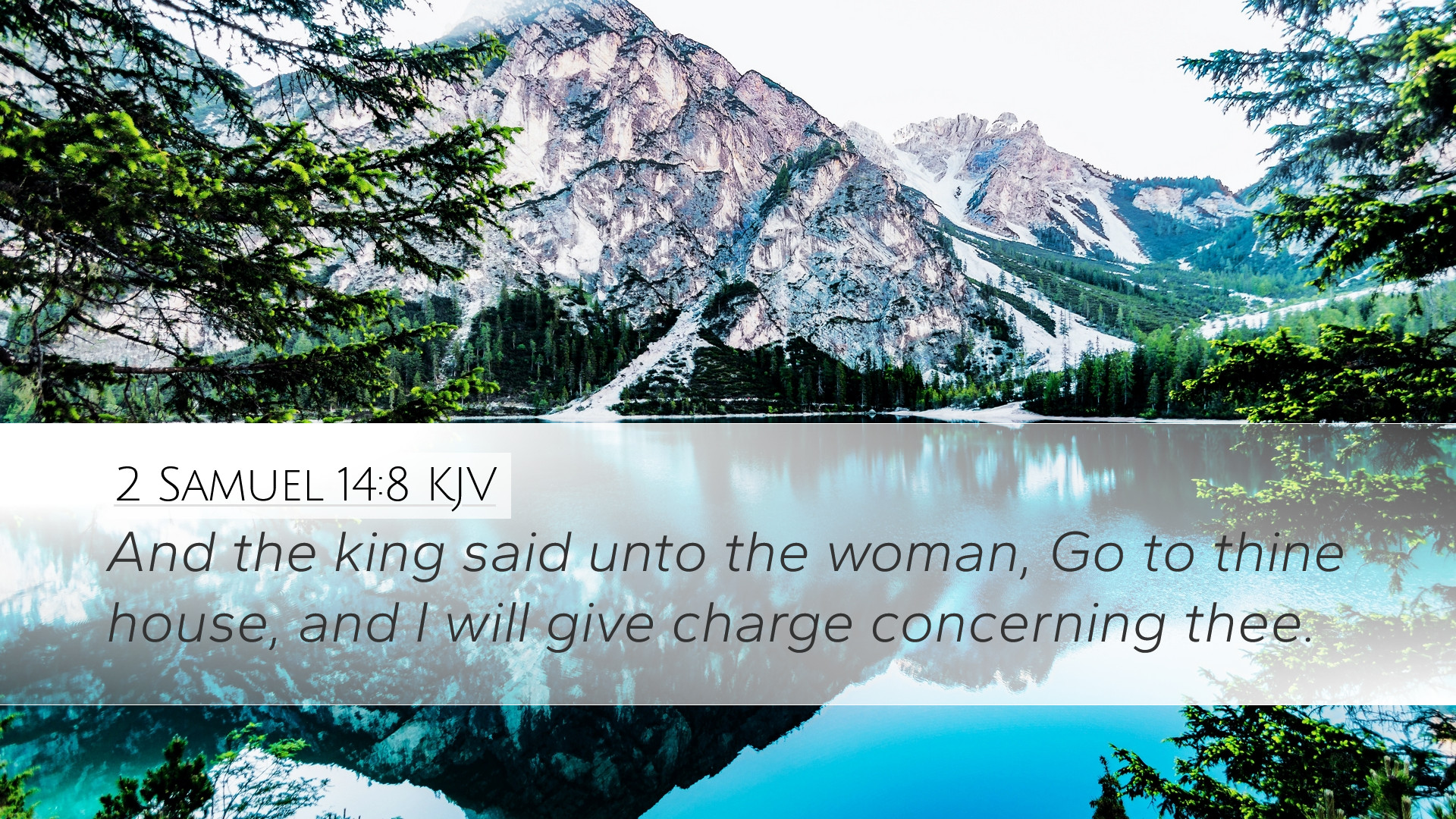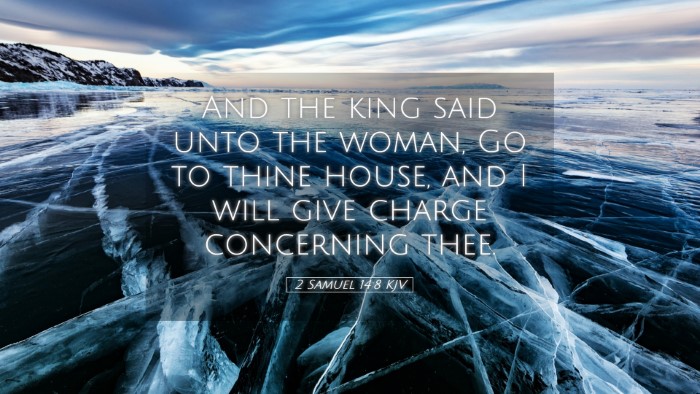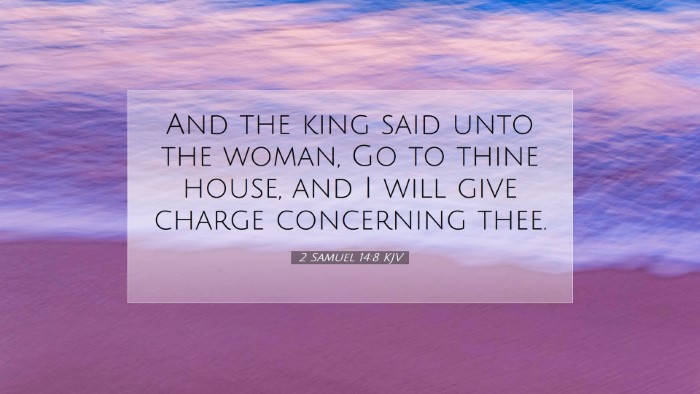Commentary on 2 Samuel 14:8
Verse Text: "And the king said unto the woman, Go to thine house, and I will give charge concerning thee."
Introduction
This verse occurs within a tense and pivotal narrative in the life of King David. The context involves a woman from Tekoa who comes to appeal to King David regarding her estranged son—a situation that ultimately leads to the reconciliation of David with his estranged son, Absalom. This commentary blends insights from Matthew Henry, Albert Barnes, and Adam Clarke to unpack the theological and practical implications of this scripture.
Contextual Overview
In understanding 2 Samuel 14:8, it is critical to consider the broader narrative arc of David's family and the political tumult surrounding his reign. Following the death of Amnon at the hands of Absalom, David's household is rife with contention and grief. The woman of Tekoa arrives with a parable designed to evoke empathy from the king, reflecting the complexities of family dynamics, justice, and mercy.
Analysis of the Verse
1. King David's Response
David's command to the woman, "Go to thine house," indicates his authority and his role as a mediator in disputes. This response can be seen as reflective of David's judicial responsibilities. In the ancient Near Eastern context, kings were often seen as the highest arbiters of justice.
2. The Promise of Protection
The phrase "I will give charge concerning thee" reveals David’s intent to ensure the woman's safety and that her plea will not go unheard. This highlights David’s recognition of justice and the need for his subjects to feel secure under his reign. Albert Barnes comments on David's role as a protector, reflecting a divine characteristic often attributed to God Himself.
3. Theological Implications
This verse encapsulates themes of mercy and advocacy. The woman's situation evokes a moral dilemma, and David’s response serves as a model for how leaders should approach complex relational issues. Adam Clarke notes that in responding to the woman, David acts with compassion, demonstrating a balance of authority and grace.
Insights from Matthew Henry
According to Matthew Henry, David's responsiveness to the woman's need symbolizes his role as a shepherd-king. Henry emphasizes that leaders should be attentive to the needs of their people and engage with their concerns sincerely. The dialogue between David and the woman signifies an essential aspect of governance: the ability to listen and act justly.
Insights from Albert Barnes
Albert Barnes points out that this interaction highlights the appeal for mercy that often accompanies human struggle. He interprets David's response as indicative of a longing for peace within his fractured family dynamics. Barnes elaborates on how this can apply in the context of spiritual leadership today, where pastors and church leaders must facilitate healing and restoration among their congregants.
Insights from Adam Clarke
Adam Clarke provides a detailed analysis of the significance of this verse in the context of David's life choices. He suggests that in giving charge concerning the woman, David is reminded of his own moral responsibilities and the weight of his kingship. Clarke draws parallels between this moment and the greater narrative of divine sovereignty and human agency, emphasizing that God often uses imperfect leaders for His purpose.
Practical Applications
- 1. Leadership and Responsibility: Pastors are reminded of their call to protect and advocate for their communities, ensuring that justice and mercy govern their interactions.
- 2. Empathy in Leadership: Leaders must cultivate sensitive hearts to understand the struggles of those they serve, as demonstrated by David’s engagement with the woman.
- 3. The Importance of Justice: Just as David listened to the woman's plight, leaders should prioritize just actions that lead to restoration and reconciliation.
- 4. Divine Guidance: This passage encourages believers to seek divine wisdom in complex situations, trusting that God will guide their decisions.
Conclusion
2 Samuel 14:8 serves as a poignant reminder of the delicate interplay between authority, mercy, and justice. The insights drawn from the commentaries of Matthew Henry, Albert Barnes, and Adam Clarke collectively illustrate the depth of this passage. For pastors, scholars, and theologians alike, this verse challenges us to reflect on our own leadership roles, reminding us to act with grace and to ardently pursue justice for those who seek help.


